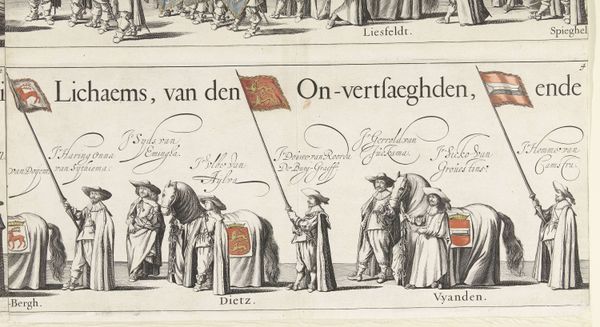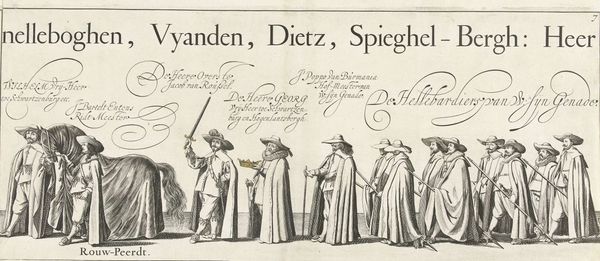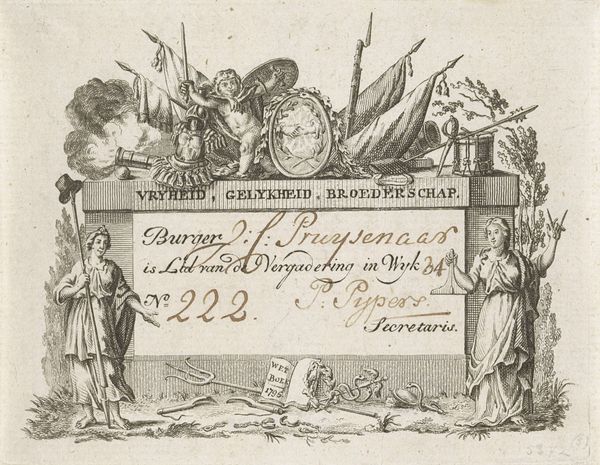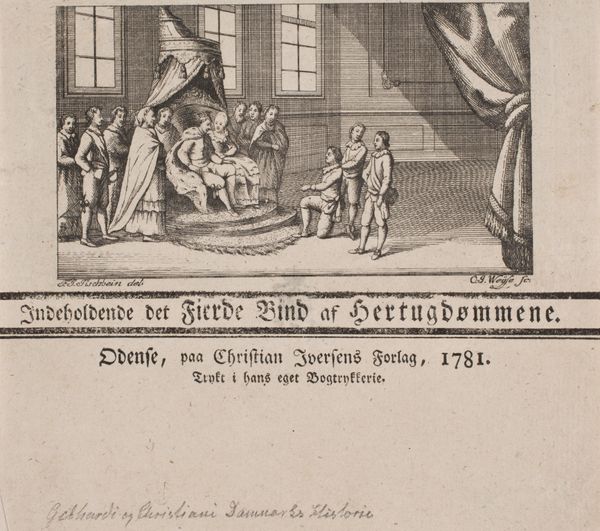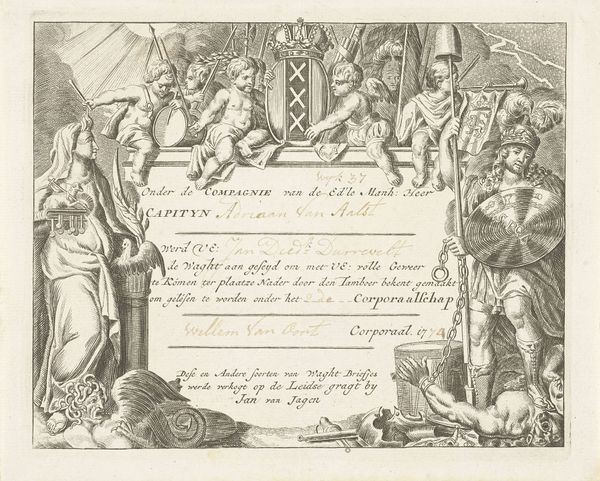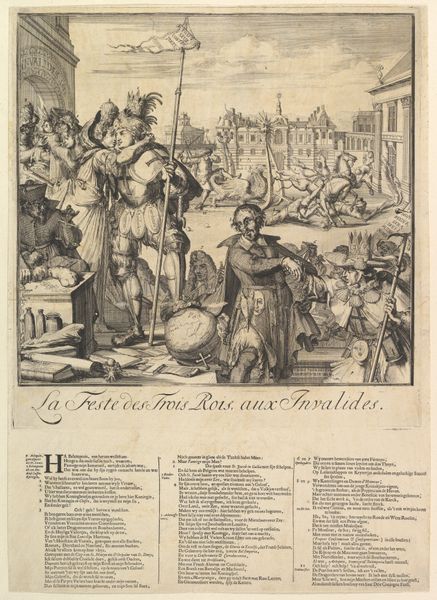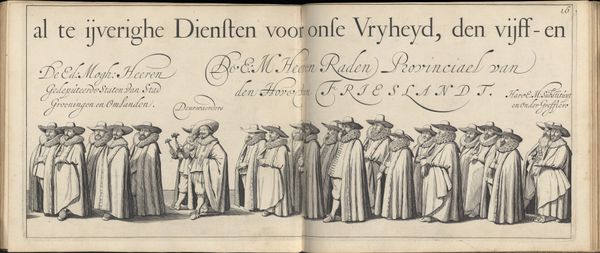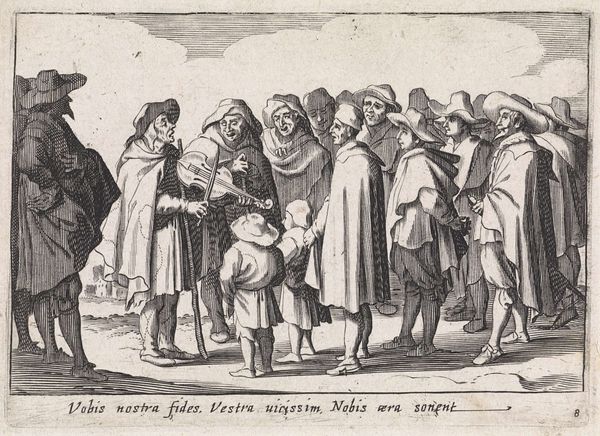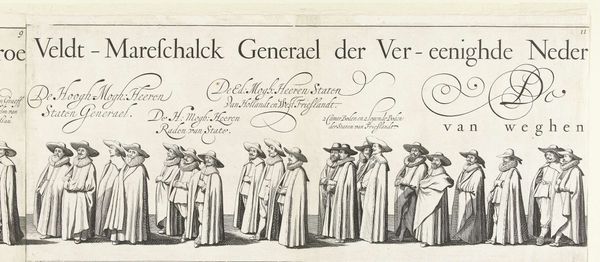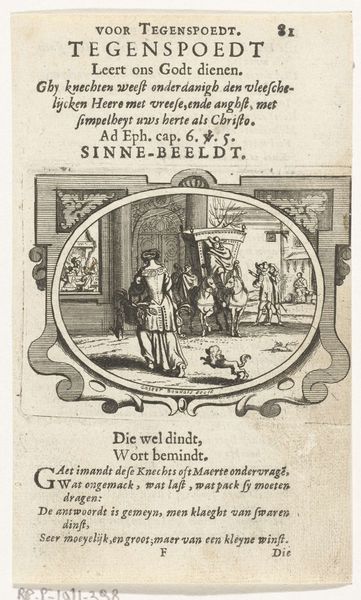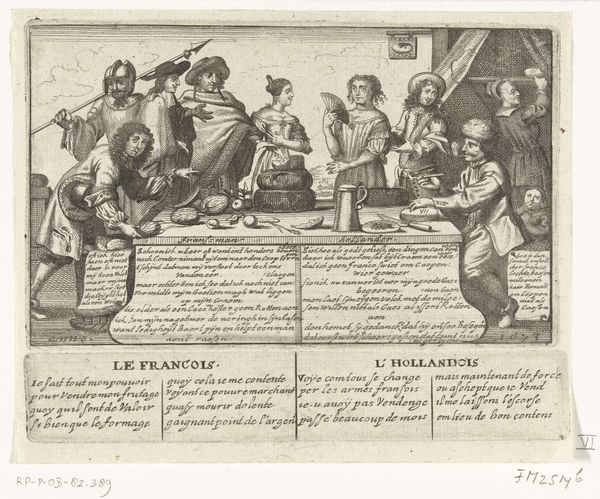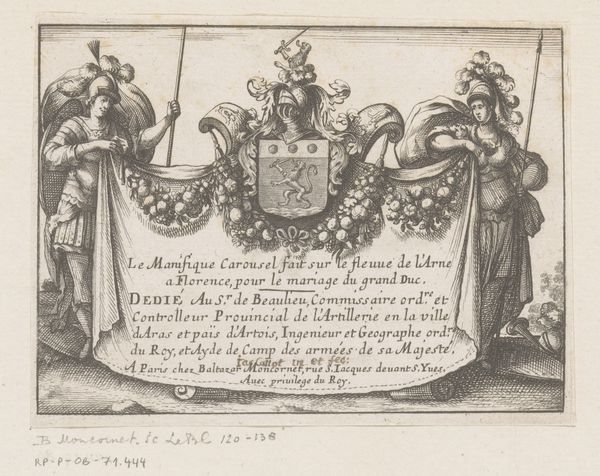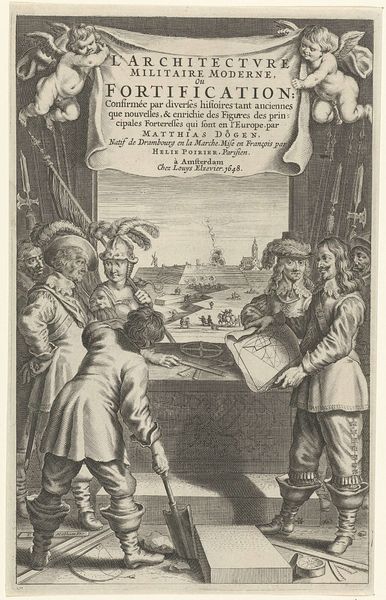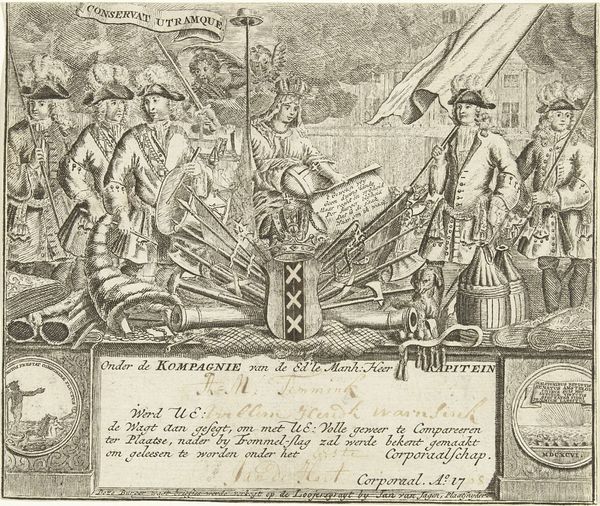
Deel van de begrafenisstoet van Ernst Casimir, graaf van Nassau-Dietz te Leeuwarden (plaat 3), 1633 1634
0:00
0:00
jhermans
Rijksmuseum
print, engraving
#
baroque
#
dutch-golden-age
# print
#
landscape
#
history-painting
#
engraving
Dimensions: height 220 mm, width 485 mm
Copyright: Rijks Museum: Open Domain
This print, made by J. Hermans in 1633, depicts part of the funeral procession of Ernst Casimir, Count of Nassau-Dietz. It was created using an engraving technique, where lines are incised into a metal plate, which is then inked and printed, a labour-intensive process requiring skilled artisanship. The choice of engraving is significant. Unlike a painting, which might emphasize individual artistry, engraving allows for the relatively quick and uniform reproduction of images. This speaks to the print’s function as a disseminator of information and a recorder of historical events. The crisp lines and meticulous detail also lend the image an air of authority and solemnity, befitting the gravity of the occasion. The very act of memorializing the Count's funeral in this way was a political and social act, cementing his legacy for future generations. By considering the print's material and mode of production, we gain a deeper understanding of its intended audience and the values it sought to uphold. It collapses any distinction between fine art and craft, because the work is both.
Comments
No comments
Be the first to comment and join the conversation on the ultimate creative platform.
